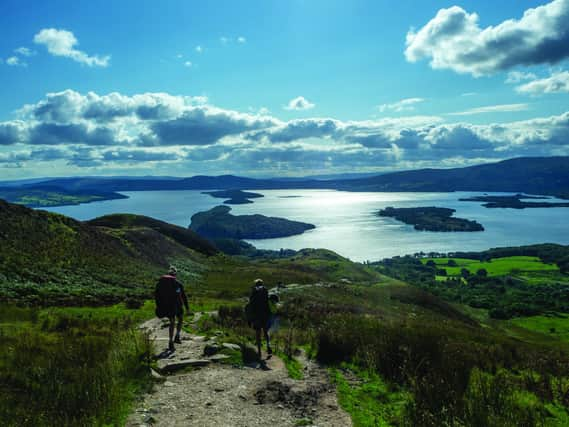Achievable actions lead to net-zero


Almost 8 per cent of the world’s total carbon emissions comes from tourism, says Kathryn Nolin, an associate in CMS’ planning team. Although it is a substantial contribution, it is spread over a wide range of sub sectors, such as transport, food and drink, and material goods.
As a business that caters for tourists, reducing impact on the environment involves being mindful of energy use, transport emissions, and the waste hierarchy,” she says.
Tourism businesses may feel overwhelmed at the thought of tackling sustainability, but small steps documented in an action plan is a great start. For example, focusing initially on reducing plastic waste takes them in the right direction.


We have more people travelling overseas, which creates more transport emissions, and so there is increased pressure on achieving net-zero targets.
A balance is needed whereby Scottish communities can continue to benefit from the lucrative source of income that tourism can bring while focus on net zero and sustainability increases as a priority .”
Nolin’s peer Joanna Waddell, CMS’ lead on sustainability for Scotland, believes that it is important to identify genuine, manageable actions and use them to market the business to tourists without resorting to greenwashing.he points to the fact that tourism is dependent on transport, which is reliant principally on fossil fuels. It is early days for the use of biofuels in aviation and the infrastructure for electric cars is not yet sufficient, particularly in rural areas.
While these technologies continue to develop, focus can be directed to other sources of greenhouse gases.In terms of buildings, Waddell says that “around 40 per cent of carbon emissions in the UK are generated by buildings, and that includes hotels, self-catering cottages, holiday apartments and hostels”.
The Scottish Government’s Heat in Buildings Strategy sets out a pathway to zero emissions buildings by 2045 by moving to heating systems which are either low or zero sources of greenhouse gas emissions. All building owners will be affected by this.
“I know prices are dipping now, but energy and fuel have been very expensive and there has been an impression of a focus on securing fuel supplies rather than looking at alternatives,” Waddell adds.
Another issue, she highlights, is rural tourism: “A lot of tourist destinations are very rural, and it is not always easy to choose a sustainable option if the products or infrastructure available at that location are simply not there.
“It is all very well businesses aiming to recycle as much as possible, but it may not be an option without incurring unreasonable expense.”
Nolin agrees, maintaining: “Often sustainable options are more expensive and this can be an issue for island communities where they are already dealing with higher costs, such as postage costs, and they have to deal with issues related to ferry reliability.”
The food and drink sector is also facing issues with staffing, immigration, extended producer responsibility, and increasing costs of material.
Some measures have been forced with the ban on single-use plastic items and the proposed Deposit Return Scheme (in whatever form it will ultimately take).
So how can all of this be improved? Both Nolin and Waddell agree that to tackle these issues, there needs to be more guidance rather than more legislation.
The Glasgow Declaration on Climate Action in Tourism has attracted more than 500 signatory organisations that have agreed to implement commitments listed in it, including to deliver climate action plans in order to reach net-zero as soon as possible before 2045.
“Initiatives such as the Glasgow Declaration are ideal because they guide businesses, create a collaborative approach and a forum that encourages the sharing of best practice – this leads businesses towards goals they can achieve,” claims Waddell.
“It can be as simple as reducing car/van use or reducing the waste that will end up in landfills. Introducing compostable or reusable coffee cups is an obvious choice or replacing plastic items where an alternative is available.
“Achievable actions are preferred, taking small steps but also consulting guidance on what a business can do to improve its environmental targets and work towards net zero.”
Nolin concludes: “It doesn’t have to be big sweeping changes, we recognise that it will be much harder for a small B&B in the Highlands to achieve net-zero compared to a big, global chain.
“Tourists aren’t looking for perfection, but for businesses to be taking transparent, justifiable actions to achieve positive changes that contribute to sustainability and net zero.”
To find out how CMS can support and advise a business on how to be more sustainable, go online and visit cms/law/scotland